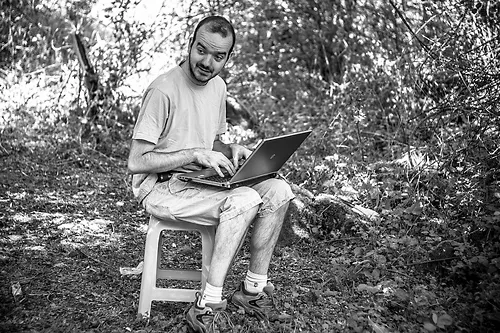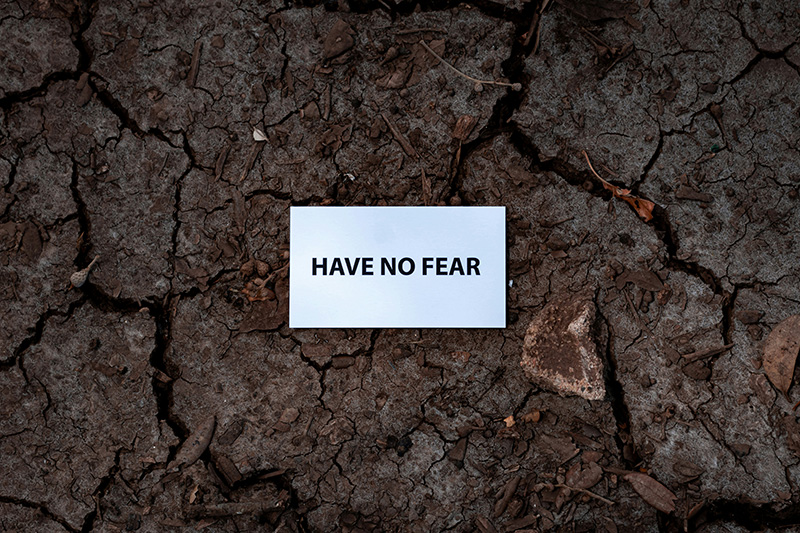Last Updated on February 15, 2022
 When life was simpler—before smart phones and Facebook, iPads and Twitter—writers retreated easily from the world to pen their works. Virginia Woolf didn't have to remember to silence her Beyoncé ringtone or do her daily blog post in order to build her platform. She simply retreated, and wrote. (She did, of course, have to procure a room of her own . . . but that's for another article.)
When life was simpler—before smart phones and Facebook, iPads and Twitter—writers retreated easily from the world to pen their works. Virginia Woolf didn't have to remember to silence her Beyoncé ringtone or do her daily blog post in order to build her platform. She simply retreated, and wrote. (She did, of course, have to procure a room of her own . . . but that's for another article.)
I'm not saying that nineteenth- and early twentieth-century writers didn't need discipline to get themselves to write. Even those early writers could find a tempting distraction. Think Baudelaire's opium addiction or Henry Miller's crowd frolicking between the sheets. But today's writers have all that and more, plus the biggest distraction of all just one click away—the Internet.
Many years ago, wanting to flee the distractions of the modern world, I tried to find a suitable hideaway for a winter writing retreat. (I'd done this a few times, and my writing output had been phenomenal.) But I kept tripping over the reality of my limited finances at the time. I could not find a hotel or retreat center within my price range, and it was too cold to go camping. So I asked myself: What is it about going away that makes my writing so productive? The answer was this: No one knows where I am. Simply put: When I went away to write, I was unplugged.
So, I thought, what do I have to do to be unplugged at home?
The following day, I set about answering that question. I bought enough groceries to last me through my retreat (so I didn't have to talk to people at the store or be bothered with shopping). I changed my outgoing message to let people know I was on a writing retreat. (I didn't mention it was a staycation. Let them think I was out of town!) I unplugged my Internet connection and my television. And I decided that my only obligation each day was to write for four hours. Nothing else was mandatory. Think of it . . . I had only four hours out of each 24 where I was obligated to do anything. Thus, my writing retreat was not only productive in terms of literary output, it was also restful and fun. I took long walks, made paintings and collages, stared out the window, essentially did whatever I was moved to do—outside of my four hours of writing. And because my mind was so free of outside distractions, the ideas that were seeded during my writing hours continued to germinate during my nonwriting hours. (I always took a small notepad and pen on my walks and almost always needed to use them.)
My stay-at-home writing retreat was so wonderful and so productive that I adopted a weekly writing-retreat day, a tradition I followed for about a year. Every Wednesday evening, I changed my outgoing voicemail to say I would return calls on Friday morning. My extreme discipline with unplugging each and every Thursday delivered extreme productivity, and extreme luxury. I craved the benefits of these retreat days so much that the discipline was not at all challenging. In fact, it didn't even feel like discipline; it felt downright indulgent.
So why do I no longer have Unplugged Thursdays in my life? I suppose I feel the weight of more responsibility these days—more editing and writing and coaching to do, more emails to answer, more blogging and posting. . . . I just feel unpluggable. But I have a hunch that this unpluggability is, on some level, an illusion. I mean, what would really happen if I didn't answer the phone or go online for one day? Would the world stop because I haven't logged in?
I realize that unplugging is less feasible for some people than for others (think parents of small children or ER doctors). But even if you fit into one of those categories, certainly you can arrange for an unplugged morning, or at least an unplugged hour.
So here's my invitation: I hereby encourage you to Just say no to cyberspace . . . just for the day. Tell your Facebook friends that you have very important business to tend to . . . and then shut down your Internet. Commit to a certain amount of time at your computer or notepad, but be sure to have downtime surrounding your writing time. (Muses love downtime.) Ask your spouse or roommate to support your need to retreat. Don't answer your phone. Don't send any texts. Don't turn on the television. Let the silence envelop you . . . and see what happens. Then please tell us about it! (Go to “Leave a Comment,” below.)
Perhaps I'll be joining you soon in the land of the Unplugged.
This article was adapted from a post on my blog: [http://writingcoachnomi.wordpress.com]
WANT TO REPRINT THIS ARTICLE ON YOUR SITE OR IN YOUR E-ZINE? You may, but only if you also include a byline and the following: “Copyright 2013 by Nomi Isak. All rights reserved— http://writingcoachnomi.wordpress.com.”
- Should You Let AI Write Your Book for You? - September 7, 2023
- Show, Don't Tell: Writing 101 for Fiction and Memoir - July 19, 2019
- Do You Need Discipline to Be a Writer? - September 14, 2018




4 Comments
Nomi,
You're on to something. Inspiration needs a void. Being plugged in all the time not only prevents us from being open to contemplative time, it hooks us on instant gratification. And instant publication! Another problem for writers. Instead of letting our work sit, instead of perfecting it, we are all writing and posting overwritten, half-baked, ill-considered work. It's just way too easy and someone might actually read it!!!
I've learned not to answer the phone when I'm trying to write, not to see the sink full of dishes, or other distracting household chores, but the Internet is even more seductive, just a click and you've left your work and are about to get some instant gratification from buying or watching or rashly commenting on someone else's post. I'm going to try one disconnected day a week -- wish me luck.
Thanks for your insightful comment, Deborah! You're right on about the instant gratification.
And yes, those dishes in the sink. Another kind of distraction. But, boy, my kitchen is clean when I'm on deadline!
Wonderful Nomi!
Thanks, Jeannine!